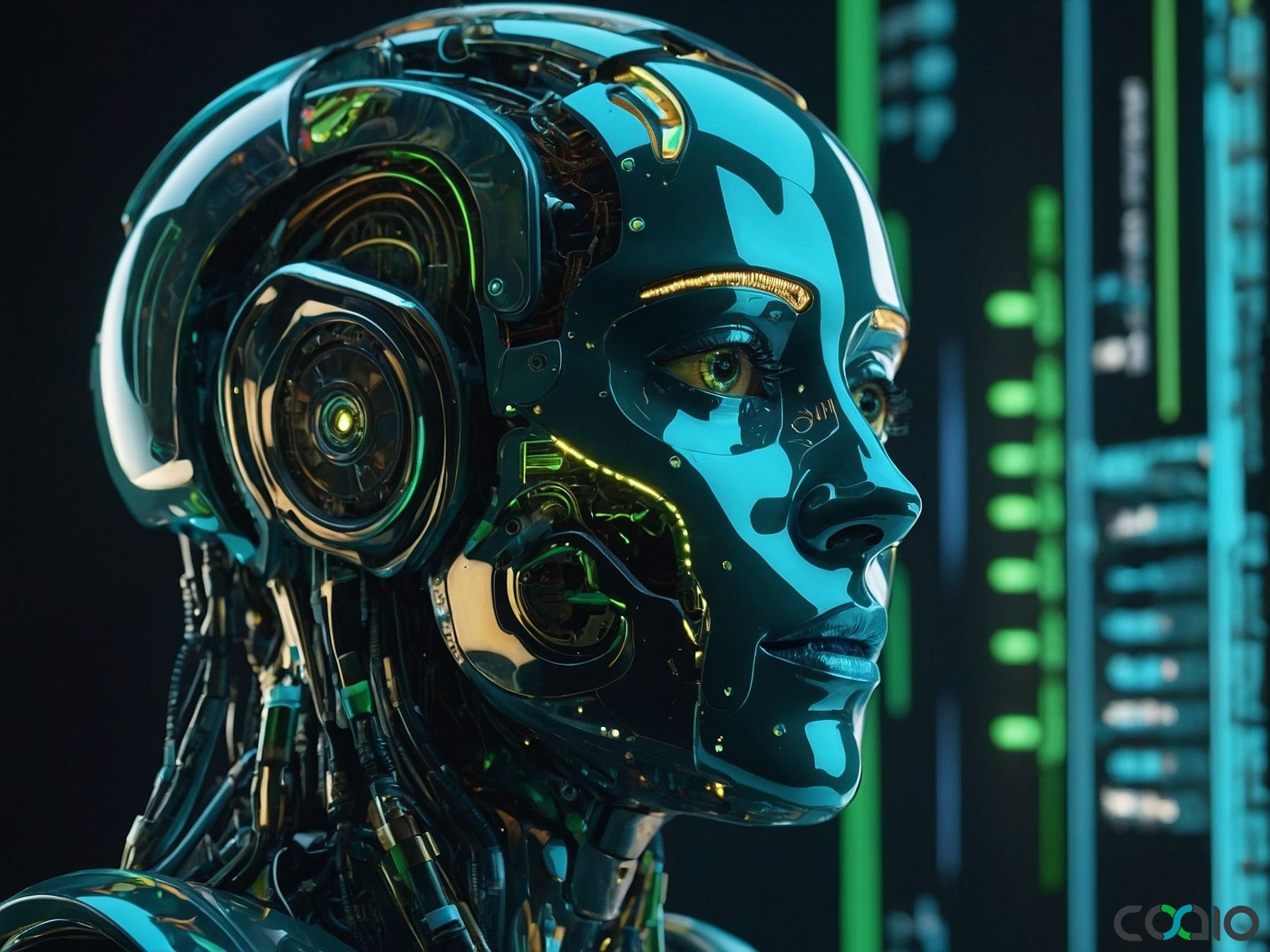
AI Breakthroughs and Data Integration: Transforming Software Development in 2025
As we dive into the latest tech news from October 7, 2025, the software development landscape is buzzing with innovations that blend artificial intelligence, data management, and even unexpected crossovers from fields like medicine and entertainment. This roundup highlights how these developments are reshaping the industry, offering new tools and challenges for developers, businesses, and innovators alike. From AI’s rapid adoption despite its pitfalls to strategies for breaking down data barriers, today’s headlines underscore the need for agile, efficient approaches to software creation.
The 2025 Nobel Prize in Medicine and Its Ripple Effects on Tech
The announcement of the Nobel Prize in Medicine has captured global attention, but its implications extend far beyond biology into the realm of software development. On October 6, 2025, Ars Technica reported that researchers were honored for discovering cells that regulate immune responses, preventing the body from turning against itself. This breakthrough reveals a peripheral mechanism that maintains balance in complex systems, a concept that parallels the challenges in software engineering where systems must be designed to handle errors without cascading failures.
In software development, this discovery inspires advancements in bioinformatics and health tech applications. For instance, developers are now exploring AI-driven models to simulate immune responses, which could lead to more robust software for personalized medicine. According to the Ars Technica article linked here, the work emphasizes the importance of fail-safes in biological systems, mirroring the need for error-handling protocols in code. This has prompted a surge in collaborative tools that integrate machine learning with biological data, allowing developers to build applications that predict and mitigate risks in real-time healthcare scenarios.
The tech industry’s response has been swift, with startups racing to incorporate these findings into software platforms. For example, developers are using this as a blueprint for creating more resilient AI systems that avoid “hallucinations”—unintended errors that can derail projects. This Nobel win highlights how interdisciplinary science is fueling innovation, pushing software engineers to think beyond traditional coding and toward more integrated, life-saving technologies.
Deloitte’s Ambitious AI Rollout Amid Setbacks
One of the most talked-about stories in tech this week is Deloitte’s full commitment to AI, as detailed in a TechCrunch report from October 6, 2025. Despite a high-profile refund issued for a report marred by AI-generated inaccuracies, the consulting giant is deploying Anthropic’s Claude AI to its 500,000 employees. This move underscores the double-edged sword of AI in software development: it’s a powerful tool for efficiency but demands rigorous oversight to prevent costly mistakes.
Deloitte’s experience serves as a cautionary tale for the industry. The report in question contained “hallucinations,” where AI fabricated information, leading to financial repercussions. Yet, this hasn’t deterred Deloitte from pushing forward, recognizing AI’s potential to streamline code generation, automate testing, and enhance project management. As businesses increasingly rely on AI for software development, this story highlights the need for ethical AI integration and robust quality assurance processes.
In the broader context, this development is accelerating the adoption of AI frameworks in enterprise software. Developers are now focusing on hybrid models that combine human expertise with AI capabilities, ensuring accuracy and innovation. For those looking to navigate these waters, partnering with specialized firms can provide the edge needed to implement AI effectively while minimizing risks.
Breaking Down Data Silos for Smarter Software Solutions
A key challenge in modern software development is managing vast amounts of data without falling into silos that hinder progress. SD Times shed light on this issue in their October 6, 2025, article, discussing how tools like Microsoft Fabric and Progress DataDirect are revolutionizing data integration. Organizations are grappling with exponential data growth, which can fuel AI projects and informed decision-making, but only if data sources are seamlessly connected.
The article explains that integrating diverse data models and protocols is essential for overcoming silos, enabling companies to unlock the full potential of their information. Microsoft Fabric, for instance, offers a unified platform for data analytics, while Progress DataDirect provides connectors that bridge different systems. This is particularly relevant for software developers building applications in cloud environments, where data from various sources must be harmonized to create efficient, scalable solutions.
In practice, this means developers can design software that pulls from multiple databases in real-time, supporting everything from AI-driven analytics to customized user experiences. The SD Times piece available here emphasizes that without proper integration, businesses risk stalled projects and missed opportunities. This trend is pushing the industry toward more collaborative tools, where data flows freely to enhance software performance and innovation.
EV Innovations and AI in Entertainment: Peripheral Tech Trends
While not directly centered on software development, stories like Lucid Motors’ record sales and the controversy surrounding Taylor Swift’s AI use offer intriguing side notes on how tech is evolving. TechCrunch reported on October 6, 2025, that Lucid Motors achieved its highest EV deliveries in seven quarters, even as tax credits expire. This success story highlights the role of software in electric vehicles, from autonomous driving algorithms to battery management systems, showing how robust coding underpins hardware advancements.
Similarly, the buzz around Taylor Swift’s promotional videos, accused of using AI for a Google scavenger hunt, raises questions about AI’s role in creative software. As per TechCrunch detailed in this link, fans criticized the potential use of AI-generated content, sparking debates on authenticity in digital media. This intersects with software development through tools for video generation and content moderation, reminding developers of the ethical considerations in AI applications.
These trends illustrate the interconnectedness of tech sectors, where software development drives progress in EVs and entertainment, influencing everything from user interfaces to content creation algorithms.
Wrapping Up: The Future of Tech Innovation
As we reflect on these developments, it’s clear that software development is at the heart of tech’s evolution, blending AI, data integration, and interdisciplinary insights to solve real-world problems. In a creative twist, imagine a world where building software is as seamless as the immune system’s natural defenses—adapting quickly, minimizing risks, and letting ideas flourish without unnecessary complications. This vision echoes the essence of empowering innovators to focus on their core strengths, turning bold concepts into reality with efficiency and precision.
About Coaio
Coaio Limited is a Hong Kong-based tech firm that specializes in outsourcing software development and building expert teams in Vietnam. We offer comprehensive services including business analysis, competitor research, risk identification, design, development, and project management, delivering cost-effective, high-quality software solutions with user-friendly designs tailored for startups and growth-stage companies in the US and Hong Kong markets. By partnering with us, you can streamline your tech projects, reduce risks, and focus on your vision while we handle the complexities of software creation.
 English
English
 Français
Français
 Español
Español
 廣東話
廣東話
 中文
中文
 日本語
日本語
 한국어
한국어
 العربية
العربية
 Deutsch
Deutsch

